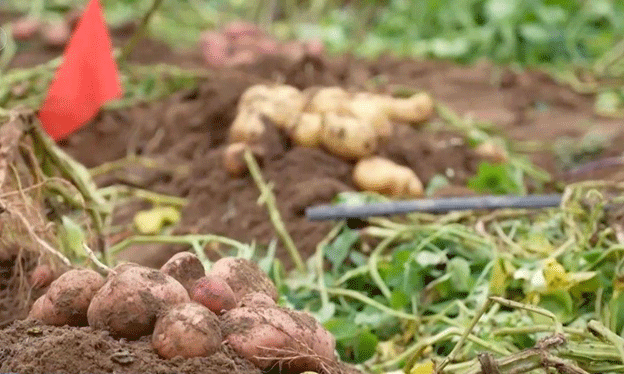Inner Mongolia’s Ulanqab city, located at 41 degrees north latitude with an average altitude of 1,400 meters, is currently undergoing a major potato harvest. Known as one of China’s leading potato-producing regions, Ulanqab’s climate and environment are ideal for cultivating this staple crop. This year, however, there’s an exciting addition to the harvest: “space potatoes.”
These space-bred potatoes were developed using seeds that traveled aboard China’s Shenzhou 14 manned spacecraft. Through the process of space mutagenesis, these seeds have undergone genetic variations due to the unique conditions of space. This has led to the creation of potato strains that exhibit remarkable characteristics—higher yields, early maturation, and enhanced disease resistance. According to Zhang Linhai, head of a local Potato Innovation Center, the growth of these space potatoes has been impressive, and the harvest will conclude by the end of September.
The potential of space-bred crops is significant. Not only do they offer a way to boost food security through improved yields, but they also contribute to the development of crops that can withstand adverse environmental conditions. Ulanqab’s overall potato production capacity is expected to reach approximately 3.1 million tons this year, with high-standard smart storage facilities capable of keeping potatoes fresh for distribution from August to the following May. Early reports suggest that yields per mu (about 1/15 of a hectare) will exceed 6,000 kilograms, which is a promising indicator of the success of these space-bred varieties.
This development holds great promise for the future of global agriculture. Space-bred crops could provide solutions to challenges like climate change, disease outbreaks, and growing population demands. Furthermore, their success in a major agricultural region like Inner Mongolia may inspire further experiments in space-based agriculture worldwide.
The successful cultivation of space-bred potatoes in Inner Mongolia signals a new era in agricultural innovation. With their increased productivity and resilience, these potatoes could play a vital role in addressing global food security challenges. As more experiments like this take place, the future of farming could very well extend beyond Earth’s boundaries.







